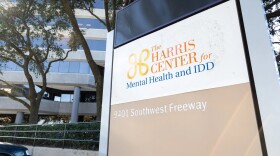In an effort to correct his misinformed statements about the shooting that claimed the lives of 19 children and two adults at Robb Elementary School in Uvalde, Texas Gov. Greg Abbott again misinformed the public — this time about another mass shooting in Texas.
On November 5, 2017, a gunman stormed the First Baptist Church in Sutherland Springs — killing 26 people and wounding 22 others.
In a response to a question about background checks at a Friday press conference, Abbott said he believed background checks wouldn't have prevented Sutherland Springs from happening.
“Look at what happened in the shooting at Sutherland Springs. There was a background check that was done. It was done in a flawed way that allowed the shooter to get a gun,” he said.
A lawyer for the Sutherland Spring victims said Abbott’s characterization that the events of Sutherland Springs prove background checks are not a viable solution is misleading.
"That is not true. The opposite is true,” attorney Jamal Alsaffar told TPR. “The federal court found after hearing months of evidence — thousands of pages of documentary evidence that, in fact, the federal government was liable in the Sutherland Springs case because background checks would have worked."
Moments after hearing Abbott's take on Sutherland Springs, Alsaffar was inundated with calls asking him to correct the record.
Intentional or not, Alsaffar said Abbott is again misinforming the public.
Earlier this year, Federal Judge Xavier Rodriguez found the government liable for $230 million in damages from the Sutherland Springs shooting because the Air Force failed to send the criminal record of the shooter – a former airman – to the FBI.
Related: Victims, family from Sutherland Springs shooting awarded $230 million
The case itself revealed a systemic problem within the Air Force and other government agencies of not supplying that data to the National Instant Criminal Background Check System.
After the 2017 shooting, fellow Texas Republican Sen. John Cornyn cosponsored bipartisan legislation called the Fix NICS Act, which was intended to make sure government agencies properly report criminal information to the nation's background check system.
Universal background checks are immensely popular with the public. A recent poll showed 88% of the public approves of the measure. In attempting to diminish their effectiveness, it is unclear if Abbott would support them. Abbott’s office did not immediately respond to a request for comment.
A two hour drive east of Uvalde, the families of Sutherland Springs still grieve and are still waiting for resolution in that mass killing.
The federal government must decide early next month if it will appeal Judge Rodriguez’s $230 million ruling against the Air Force.
“It’s about responsibility and accountability, absolutely. And when you are at fault like the federal government was for the church shooting at Sutherland Springs, that you take responsibility for it,” said Alsaffar.
Alsaffar called out the Biden administration, saying that not appealing the ruling is one way the president can act to stem the carnage of gun violence in America.
Copyright 2022 Texas Public Radio. To see more, visit Texas Public Radio. 9(MDA4OTAxNzAzMDEzMjc0MTc2MzA5ZDZlMw004))






